Conference Program
David I Smith received his Ph.D. in Biochemistry from the University of Wisconsin in Madison in 1978. His first academic position was at Wayne State University School of Medicine and in 1996 he moved to the Mayo Clinic as a Professor in the Department of Laboratory Medicine and Pathology. He is also the Chairman of the Technology Assessment Group for the Mayo Clinic Center for Individualized Medicine. His laboratory utilizes next-generation sequencing to study the different ways that human papillomavirus can cause cancer in different tissues. His group also studies the common fragile sites which are regions of profound instability found in all individuals.

David I. Smith (iCancer 2019)Mayo Clinic,USA
09.45-10.25
Sherry X. Yang is Chief of National Clinical Target Validation Laboratory, Division of Cancer Treatment and Diagnosis at the National Cancer Institute (NCI), Bethesda, Maryland. Dr. Yang joined the NCI in 2001 upon completion of fellowship training from the Johns Hopkins Oncology Center. Her research interests include clinical target validation and biomarker science towards precision oncology. Dr. Yang’s laboratory focuses on the predictive and prognostic biomarkers of targeted cancer therapeutics and chemotherapy in breast cancer and lung cancer as well as other cancer types. She is recipient of several biomarkers-related awards and innovations, and an editor of Handbook of Therapeutic Biomarkers in Cancer, 2nd edition.
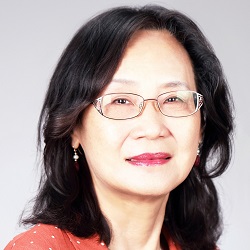
Sherry Yang (iCancer 2019)NIH- National Cancer Institute,USA
10.30-11.00
Abdulkader Rahmo finished his degree in Biochemistry at the Swiss Federal Institute of Technology in Zurich 1988, completed his PhD at the University of Southern California in Los Angeles 1994 did my postdoc at a major clinical laboratory in Munich Germany. In 1995 he established and supervised a large private clinical laboratory specialized in molecular and genetic diagnostics in Damascus. In 2001 , he became a member of the faculty of medicine at the Uni. Damascus and established the laboratory for genetic research. He Co-Founded at 2004 the National Commission for Biotechnology where He became the head of the medical Biotechnology section. He taught molecular biology and medical genetics at the International University for Science and Technology IUST, and molecular epidemiology at the Ecole Doctoral of the Lebanese University. He moved to the USA in 2013 and was visiting scientist at Western University of Health Sciences. His current efforts are focused towards establishing and promoting a biotech company based on my stem cell research contributions. His current research and development centers on two major fields: regenerative medicine, and biotech pharmaceutical development and production. He is also interested in issues related to knowledge management in scientific organizations and research policy.
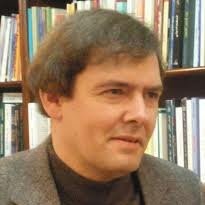
Abdulkader Rahmo (iCancer 2019)SMSbiotech,USA
11.25-11.45
Hariharan Easwaran serves as Assistant Professor of Oncology in the Sydney Kimmel Cancer center at the Johns Hopkins University. Dr. Easwaran received his PhD from Humboldt University, Berlin, where he defined the mechanisms underlying the maintenance of DNA methylation by the key epigenetic enzyme, DNA methyltransferase-1 (DNMT1). He completed his post-doctoral training in the lab of Dr. Steve Baylin where he studied the nature of genes undergoing aberrant DNA methylation in cancer, and showed that the aberrantly silenced genes may help impart “stemness” to cancer cells. Dr. Easwaran’s current research focuses on the roles of epigenetic mechanisms in cancer etiology. The long-term goal of his group involves understanding the molecular mechanisms and evolutionary dynamics of epigenetic changes, with special emphasis on DNA methylation, using various early tumorigenesis models. His work seeks to harness this knowledge for cancer detection and treatment.

Hariharan Easwaran (iCancer 2019)The Johns Hopkins University School of Medicine,USA
11.50-12.10
Gianluca Valentini has completed his Post-Graduate Program in Nuclear Medicine at the age of 29 years from La Sapienza University in Rome. In 1985 he started research with PET-SCAN, working with several American and Canadian facilities (medical centers such as Houston, Montreal, Washington, and Baltimore). He carried out the first experimental production of radioisotopes in 1987 at the National Nuclear Physics Institute in Frascati. In 1996 he founded AMG (Advanced Medicine Group), the European pioneer group in the radiopharmaceuticals research. He is the scientific director of ACOM spa (Advanced Center Oncology Macerata) since 1999. ACOM has developed several innovative technologies for cancer diagnosis and therapy. He has several patents of new radiopharmaceuticals.
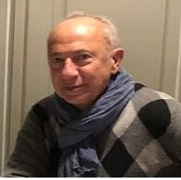
Gianluca Valentini (iCancer 2019)Advanced Center Oncology Macerata (ACOM),Italy
12.15-12.35
Dr. Gudipally is currently pursuing an Internal Medicine Residency at Mercy Catholic Medical Center. As an African-American health promoter, she serves and spreads awareness and would like to pursue the Hematology/Oncology fellowship.

Sindusha Gudipally (iCancer 2019)Mercy Catholic Medical Center,USA
12.40-13.00
Abstract: 3-Bromopyruvate (3BP) is a promising powerful general anticancer agent. Unfortunately, 3BP release faces many practical and biochemical problems in clinical human oncology, for example, 3BP induces burning venous sensation (during intravenous infusion) and rapid inactivation by thiol groups of glutathione and proteins. 3BP exhibits resistance in glutathione-rich tumors without being able to exert selective targeting. 3BP does not cross the blood-brain barrier and cannot treat nervous system tumors. Importantly, 3BP cannot persist in tumor tissues due to the phenomenon of enhanced permeability and retention effect. Here, the author presents the practical solutions for clinical problems facing 3BP use in clinical oncology, based on over 10 years of experience in 3BP research. Crude (unformulated 3BP that is purchased from chemical companies without being formulated in liposomes or other nanocarriers) should not be administered in clinical oncology. Instead, 3BP is better formulated with liposomes, polyethylene glycol (PEG), PEGylated liposomes (stealth liposomes) or perillyl alcohol that are used currently with many chemotherapeutics for treating clinical tumors in cancer patients. Formulating 3BP with targeted liposomes, for example, with folate, transferrin or other ligands, improves tumor targeting. Formulating 3BP with liposomes, PEG, stealth liposomes or perillyl alcohol may improve its pharmacokinetics, hide it from thiols in the circulation, protect it from serum proteins and enzymes, prevent burning sensation, prolong 3BP's longevity and facilitate crossing the BBB. Formulating 3BP with stealth liposomes protects 3BP from the reticuloendothelial cells. Liposomal 3BP formulations may retain 3BP better inside the relatively large tumor capillary pores (abolish enhanced permeability and retention effect) sparing normal tissues, facilitate new delivery routes for 3BP (eg, topical and intranasal 3BP administration using perillyl alcohol) and improve cancer cytotoxicity. Formulating 3BP may be promising in overcoming many obstacles in clinical oncology.

Salah El Sayed (iCancer 2019)Taibah University,Saudi Arabia
13.50-14.10
Bianca Gutfilen has completed his PhD at the age of 30 years from Universidade Federal do Rio de Janeiro. She is Founder and Head of the Laboratory of Labeling of Cells and Molecules (LMCM)/UFRJ, created in 2002. She has published more than 100 papers in reputed journals and has been serving as an editorial board member of repute journals. She has experience in the area of Nuclear Medicine, with emphasis on Radiopharmacy, on the following topics: cancer, infection, transplants, cell therapies, stem cells, leukocytes and antibodies.

Bianca Gutfilen (iCancer 2019) Universidade Federal do Rio de Janeiro, Brazil, Brazil
14.15- 14.35
Dr. Zhang is the founder and CEO of Yinuoke Ltd, a biotech startup developing novel cancer immunotherapies. Dr. Zhang graduated from Jilin University with a doctoral degree of immunology in 2007. From 2008 to 2012, Dr. Zhang did a postdoctoral fellowship at Stanford School of Medicine studying cancer immunology and immunotherapy. After the postdoctoral fellowship, Dr. Zhang continued to study cancer immunology for another four years at Stanford School of Medicine, focusing on the immune system dynamics during cancer progression and its impact on the host. In 2016, Dr. Zhang founded Yinuoke Ltd., to discover and develop innovative cancer treatments by targeting the tumor-induced immune disorder.

Lingbing Zhang (iCancer 2019)Yinuoke Ltd,USA
14 : 40-15 : 00
Abstract: Death caused by prostate cancer (PC) is mainly due to metastasis, and the 5-year survival rate of metastatic PC is only 28%. In the setting of our mouse model for metastatic PC, we sought to investigate genes which regulate the switch from benign primary PC to lethal metastatic PC. Specifically, we searched for proteins that interact with Myc, an oncogene that confers an aggressive metastatic phenotype to prostate tumours. In doing so, we identified a phosphatase, Phlpp2, as one such regulator of Myc. Our mouse model demonstrated that complete loss of Phlpp2 blocks prostate tumor growth and metastasis burden. In fact, when Phlpp2 is deleted in these mice, only 7% develop metastatic disease compared to 60% without the Phlpp2 deletion. Furthermore, we show that Phlpp2 activates Myc by regulating its stability. Phlpp2 deletion does not affect Myc transcript levels, but decreases Myc protein expression by over 75%. Furthermore, the half-life of Myc decreases from 19.3 to 12.7 minutes upon Phlpp2 deletion. Additionally, we provide evidence that Phlpp2 dephosphorylates the threonine 58 (T58) site of Myc, thus directly increasing its stability. Importantly, we show that a small molecule inhibitor of Phlpp2 suppresses Myc and causes cell death. Myc concentration decreases in a dose-dependent manner following treatment with a Phlpp2 inhibitor, which coincides with a dose-dependent increase in cell death. A similar trend is seen in the PC3 cell line derived from human PC. In sum, our findings reveal that Phlpp2 represents a possible druggable vulnerability for targeting Myc in metastatic PC.
.jpg)
Vincent D'Andrea (iCancer 2019)Zucker School of Medicine at Hofstra/Northwell,USA
13 : 05-13 : 20
Abstract: The epigenetic modifications are used as biomarkers for therapeutic development of many cancer types. Glioblastoma is one of the most types of malignant brain tumor in adults, it can grow and spread quickly causing harm to health brain. The major challenges for treating of glioblastoma are drug resistance by cancer cells. In the present study, we showed the therapeutic efficacy of two chemical compounds are (suberhydroxmic acid) (SAHA) and N-(4-hydroxyphenyl) retinamide (4HPR), and their combination to induce apoptosis in glioblastoma cell line C6 and T98G in vitro. The combination between SAHA and 4HR are contributed in increase enhancement death of cancer cells by activating the pro-apoptotic family pathway (Bax) family inside cell and inhibiting anti apoptotic family pathway Bcl2. Also, the synergism of SAHA and 4HPR led to induce cell cycle arrest and reduce cancer cell invasion. (4-HPR) and SAHA significantly stimulated astrocytic differentiation in glioblastoma cell line C6 and T98g via downregulating proteins expression involved in cells dedifferentiation and proliferation such human telomerase reverse transcriptase (hTERT), DNA-binding protein inhibitor ID-2, and c-MYC and upregulating Gila fibric acidic protein (GFAP) induced to cell differenation. Also, combination of two drugs are attributed in reduce invasion cell by downregulating MMP2 and MMP9. Hence, combination of 4-HPR and SAHA might be importing for controlling growth and differentiation of glioblastoma cells. and they consider promising agent in the treatment of glioblastoma cells.

Firas khathayer (iCancer 2019)University of South Carolina,USA
15 : 25-13 : 50
Dr. Takebe joined the Developmental Therapeutics Clinic as an Associate Chief, Developmental Therapeutics Clinic of the Early Clinical Trials Development Program in the Division of Cancer Treatment and Diagnosis (DCTD), NCI in June 2017. She is a translational science PI for the NCI Exceptional Responder Protocol, coinvestigator for NCI-MATCH, Steering Committee Member of Pediatric Match, and member of the Agent and Gene Working Group of LungMap which were all established under the NCI Precision Medicine Initiatives in 2012 (and followed by the Cancer Moonshot Program). Prior to her current position, she was a Senior Investigator at the Cancer Therapy Evaluation Program (CTEP) for 10 years. Dr. Takebe received her M.D. and Ph.D. degrees from Hirosaki University School of Medicine, Japan, and completed her internal medicine residency programs in US Navy Hospital Yokosuka, Keio University in Tokyo, and California Pacific Medical Center in San Francisco in 1994.

Naoko Takebe (iCancer 2019)NIH,USA
10.00-10.20
Kavindra Nath is a Research Assistant Professor at the University of Pennsylvania, Perelman School of Medicine. He did Ph.D. in Magnetic Resonance Imaging and Spectroscopy (MRI/MRS) from premier medical institution in India. In Ph.D. he studied the role of MRI and MRS techniques in the differential diagnosis of cystic intracranial mass lesions in patients. His current research at University of Pennsylvania is utilizing multi-nuclear (1H, 31P, 13C) MRS and other techniques in vitro and in vivo in order to delineate the mode of action of various monocarboxylate transports, mitochondrial pyruvate carrier and electron transport chain inhibitors, which distinguishes normal cells from malignant cells and potentiates the activities of various chemotherapeutic drugs, radiation therapy and hyperthermia in a variety of human cancers. He has published more than 30 papers in reputed journals and has been serving as an editorial board member of many reputed journals.

Kavindra Nath (iCancer 2019)University of Pennsylvania,USA
10.25-10.45
Dr. Sarkar received her Ph.D. from Purdue University on Biological Engineering. As a postdoctoral fellow at NCI-NIH with Dr. Esta Sterneck and at M.D. Anderson with Dr. Sendurai Mani, Dr. Sarkar gained extensive experience working with breast cancer cell lines as well as in vivo xenograft models. She has published her work in numerous journals such as PNAS, oncogene, MCB, Cancer Research etc. At Texas A & M, Department of Biology, Dr. Sarkar’s lab is focusing on the role of energy restriction on metastatic tumor growth and also investigating the role of metabolites in cancer progression and metastasis.

Tapasree Roy Sarkar (iCancer 2019)Texas A & M University,USA
11.05-11.25
Dr Yunliang Chen obtained his PhD from Bart’s and The London School of Medicine and Dentistry, University London. Currently as senior scientist at Molecular Coagulation Biology Lab, Thrombosis Research Institute, London, UK. Mainly research interests including the relevance of cell signal transduction, tumorigenicity and procoagulation characteristics in cancer. He has published more than 20 papers in reputed journals.
 - Copy.jpg)
Yunlaing Chen (iCancer 2019)Thrombosis Research Institute,UK
11.30-11.50
David I Smith received his Ph.D. in Biochemistry from the University of Wisconsin in Madison in 1978. His first academic position was at Wayne State University School of Medicine and in 1996 he moved to the Mayo Clinic as a Professor in the Department of Laboratory Medicine and Pathology. He is also the Chairman of the Technology Assessment Group for the Mayo Clinic Center for Individualized Medicine. His laboratory utilizes next-generation sequencing to study the different ways that human papillomavirus can cause cancer in different tissues. His group also studies the common fragile sites which are regions of profound instability found in all individuals.

David I. Smith (iCancer 2019) Mayo Clinic,USA
11.55-12.15
Assoc. Professor Robyn A. Lindley is the Chief Scientist and a Founding Director of GMDx Group Ltd. She is also an Honorary Senior Fellow in the Department of Clinical Pathology, Victorian Comprehensive Cancer Centre (VCCC), Faculty of Medicine, Dentistry and Health Sciences at the University of Melbourne in Australia. Although her first degrees are in physics and informatics, Robyn is an immunogeneticist who has been publishing on the molecular mechanisms of evolution and somatic hypermutation for over two decades. More recently at GMDx, she led the group that first showed how deaminase mutation signatures can be used to predict 'responders' to a new generation of immunotherapy drugs.

Robyn A Lindley (iCancer 2019)GMDx Co Pty Ltd,Australia
12.20-12.40

Mikki Sapkota (iCancer 2019)Kathmandu University,Nepal
13.30-13.50
Hereditary cancer syndromes are typically caused by mutations of a tumor-suppressor gene that lead to the early development of multi-focal benign neoplasms. While a significant proportion of these syndromes features malignant tumors, some of these syndromes are characterized by highly penetrant benign tumors. The reason why the benign tumor state is favored has been an elusive question in cancer biology. In this opinion article, we propose a new framework where the tumor-suppressor gene heterozygous microenvironment has an antagonistic role in tumorigenesis - one being accelerating development of benign tumors, and the second being restraining of further progression to malignant cancers.
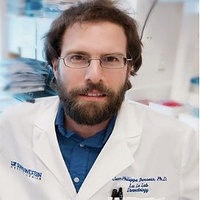
Jean-Philippe Brosseau (iCancer 2019)University of Texas Southwestern Medical Center,USA
13.55-14.15
Head and Neck Cancers (HNC) are associated with a higher prevalence of psychological stress in comparison to other types of cancer. Psychophysiological mechanisms linking stress and cancer involve increased circulating levels of glucocorticoids and catecholamines, exerting protumorigenic effects via genomic and non-genomic signalling. This also results in the activation of commonly deregulated pathways in cancer. One of the most commonly deregulated pathways in HNC, is the PI3K/Akt pathway activated by Epidermal Growth Factor (EGF) – Epidermal Growth Factor Receptor (EGFR) interaction. The aim of this study was to examine the expression of Glucocorticoid Receptors (GR) on oral cancer tissues, the effects of Glucocorticoids on the PI3K/Akt pathway, cell proliferation and cell migration in Oral Adenoid Squamous Cell Carcinoma (TYS) and Normal Keratinocytes (HaCaT) cell lines. This study examined the expression of GR using Immunohistochemistry, the effect of Cortisol on HaCaT and TYS cell lines using Scratch and Scatter assays for cell migration, MTT assay for cell proliferation and Western blot to investigate Akt activation. The results indicated that cortisol activated the PI3K/Akt pathway, caused increased proliferation and cell migration. Cortisol also potentiated the effect of EGF-induced proliferation and cell migration. These effects were cell line dependent, showing increased activity in TYS cells, in comparison to HaCaT cells. Our results indicate that the stress hormone cortisol increased the cancer cells proliferation and migration. Research of the underlying mechanisms linking stress to cancer progression and scrutiny of its interaction with commonly deregulated pathways may lead to effective anti-cancer interventions.

Anem Iftikhar (iCancer 2019)University of Dundee,UK
14.20-14.35
Eric is a former African Fellow and recent graduate of the M.Sc. Biotechnology program at The American University in Cairo, where he has also served as both a teaching and research assistant. He additionally holds a Bachelor of Science in Agriculture from Alexandria University, Egypt. Eric’s master’s thesis aimed to assess the the effects of Ephedra foeminea herbal extracts on U2OS human bone osteosarcoma cell viability and migration. His research interests include molecular biology, cancer therapeutics, and bio-markers and possess skills in a range of molecular techniques including both mammalian cell culture, and cell-based assays.

Eric Zadok Mpingirika (iCancer 2019) The American University in Cairo, Egypt
14.40-14.55
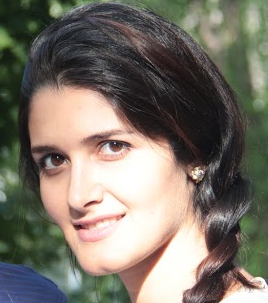
Sanaz Aliary Kardehdeh (iCancer 2019)University of Maryland,USA
Poster-
Dr. Nathaniel Parker, DO PGY1 IM at the Kansas University School of Medicine. Prior to residency he earned his medical degree from the Kansas City University of Medicine & Biosciences. Before medical school, he was rewarded a two-year position as an Intramural Research Training Award (IRTA) Fellow at the National Institutes of Health (NIH) in Bethesda, Maryland. Dr. Parker is interested in performing research and pursuing a fellowship in hematology/oncology.

Nathaniel Parker (iCancer 2019)Kansas University School of Medicine,USA
Poster-
Nikolai V Slavine received his PhD diploma in Theoretical Physics from the Joint Institut for Nuclear Research. From 1999 he served in the Department of Radiology at the UT Southwestern at Dallas. He develops a novel iterative deconvolution method for quantitative clinical image improvement for different imaging modalities (PET, CT, DBT, MBI and MRI). Method operates on patient DICOM images and can be used for improvement noise, resolution and contrast to help facilitate screening and diagnosis of cancer at the earliest stages.

Nikolai Slavine (iCancer 2019)UT Southwestern Medical Center at Dallas,USA
Poster-

Brandon Drennen (iCancer 2019)University of Maryland,USA
Poster-
